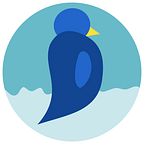How Does a Standup Last Forever?
Minutes turn to hours, days to years then gone…
While eternity is good for a lasting love story, we do not want it to happen for our daily standups call or other meetings. Daily standups should be short, focused and effective meetings to gather updates and remove blockers for teammates.
Highly productive teams want to keep meetings as concise as possible. Some standsup can stretch seemingly forever even when the discussions could be much shorter and concise, or don’t matter to half the people attending. Below are three common scenarios that cause this.
Dev Huddles
A Dev Huddle happening within the standup is the most common reason why standups drag on forever. An extremely common scenario is after a developer has given their updates during the standup, someone else in the team starts asking for details on the technical implementation or start offering solutions to a problem within standup. The call spirals into a deep technical discussion or problem-solving session during the standup itself. Such discussions should be taken separately.
In sports, to huddle means to crowd together or gather closely, typically to discuss strategies.
Similarly in Software Engineering, a Dev Huddle is a short, standalone discussion for the developers working on their stories to discuss new findings or technical issues regarding some requirements. Huddles usually happen only after development is already in progress, because a developer may not know the problem until they stumble upon it during development. When such problems are raised during standups, it is better to identify that a huddle is required and request the relevant team members to continue on a separate call. This is often called “taking it offline”.
What Happens During Huddles?
During a huddle, the developer working on a story feature will run through their new findings and explain the complications first to the team. The rest of the team, particular the senior developers or tech lead, will then discuss and advise further. The team will eventually align and come to a consensus regarding the best approach.
During a technical huddle, we might discuss:
- An architecture change that may be needed
- A particular blocker
- Which library to use
- How to get unblocked on certain tech blockers
- Unclear or missing requirements that may require more inputs from the Product Owner or Business Analyst.
Kickoffs
Often during standups, one or more developers would sign up for something new after finishing their previous work. Sometimes time is wasted when the Business Analyst or Tech Lead starts going through the requirements of the new story with everyone around. The rest of the developers, who are not needed, are made to sit through the entire session.
In sports, a kickoff is an event when a player kicks the ball from the centre spot to signify the start or resumption of a soccer match.
A kickoff in Software Engineering is another short meeting at the start of the development. Kickoffs are generally meant for the Tech Leads or Business Analysts to walk through the requirements of the cards to Developers or Quality Analysts, whom will be working on them, before actual development begins. Instead of going through the requirements of the new card during the standup, a better approach is push the kickoff of the new card to another call or meeting after the standup.
What Happens During Kickoffs?
During kickoffs, we might discuss the:
- Problem Statement
- Business Value
- Clarify Requirements or the Scope
- Explain the Acceptance Criteria
- Answer Open Questions
- Testing Scenarios
Desk Checks
Another common scenario is after a developer completes a card, he or she is asked to demonstrate the completed features during the standup. Again, this is another potential time waster as not every team member other than the QA team may be required. Furthermore, there are usually many follow-up questions asked when the features are demonstrated that may extend the standup.
A Desk Check in Developers’ term is an informal call for a developer to demonstrate a partial or fully completed feature to the team (testers, quality analysts, other developers). The goal is to prove that the feature or solution is working correctly and to get feedback early. Desk Checks can happen during development to gather feedback earlier or more typically, at the end of the development to ensure that everything is working correctly before the QA picks them up for testing.
What Happens During Desk Checks?
During desk check, the developer invites required team members and shows the working solution to them:
- Walking through the initial context
- Walking through the Acceptance Criteria
- Demonstrate the working features
- Demonstrate the scenarios for the different acceptance criteria
- Bring up relevant technical topics — e.g. limitations, caveats, performance issues etc
Above are three common scenarios that cause lengthy standup calls. If your team is facing this, try to identify these time-wasters and move them.
